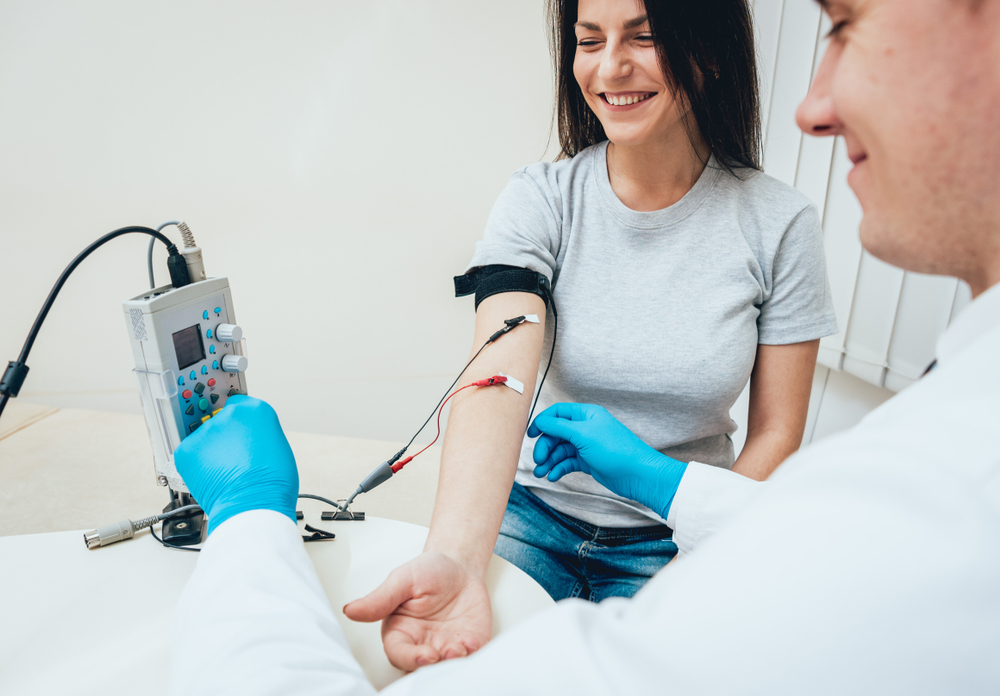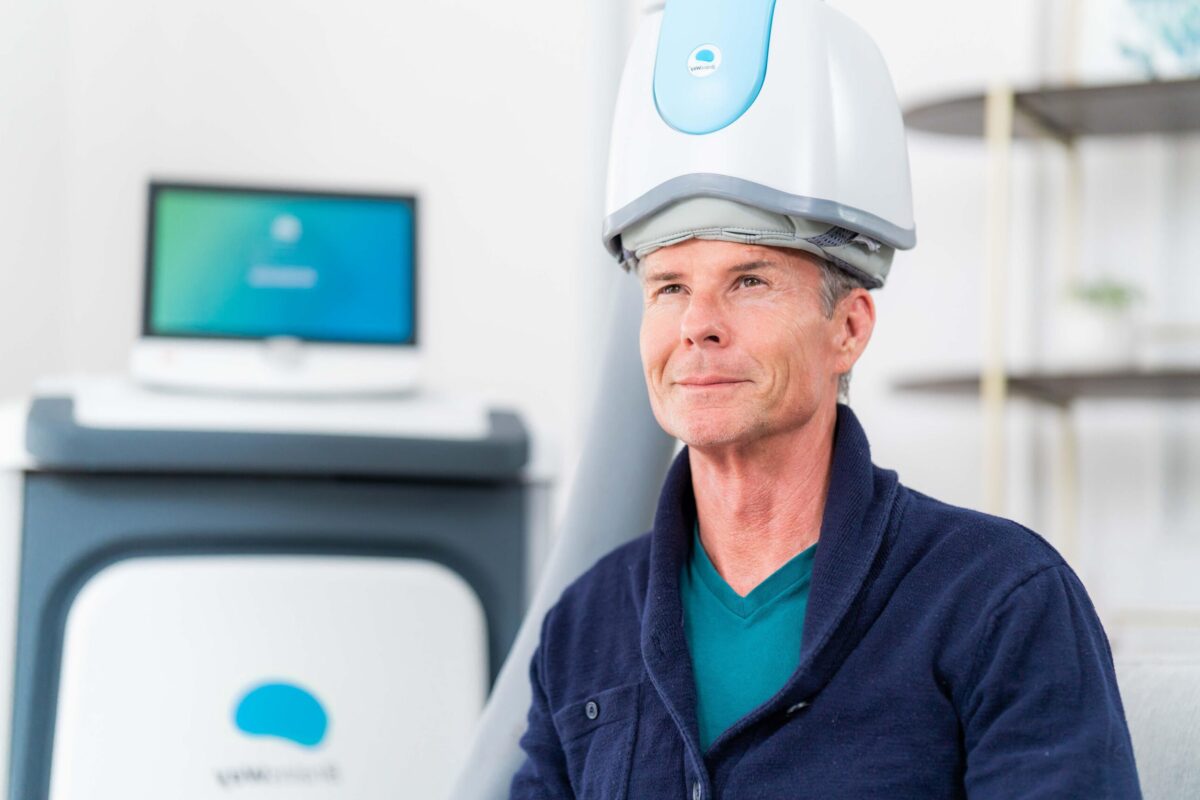Same Day EDX and EMG testing for nerve pain in cherry creek
The Axon Integrative Health team provides thorough and prompt electrodiagnostic (EDX testing) and neurophysiological testing in Denver to better understand and treat your chronic pain.
Electrodiagnostic testing can be helpful in evaluating weakness, numbness, and pain. The two main components of an electrodiagnostic test include the needle electromyographic examination (EMG) and nerve conduction studies (NCS).
To perform nerve conduction studies, our physician will adhere small surface electrodes onto the skin and apply a brief electric stimulus to one portion of the nerve. Nerve stimulation will cause a tingling sensation. Your physician can then evaluate the electrical response of the nerve or muscle to which the nerve is attached, and determine if the nerve impulse is conducted normally. Nerve damage and its severity are determined when nerve conduction is either slow, has low amplitude, or not at all present.
People who may be in need of further testing:
- Car accident patients with nerve pain
- Numbness and tingling into your hands or feet
- Pain in your hands
- Excessive muscle twitching
- Carpal tunnel patients
- Tarsal tunnel patients
- Herniated discs
- Diabetic neuropathy
- Other peripheral nervous system disorders
During an EMG, your physician studies the electrical activity in your muscles by inserting a fine needle electrode into selected muscles. Needle insertion may cause mild, temporary discomfort. The needle is smaller than one used for an injection, about the size of an acupuncture needle, and no shocks are given. The physician can determine whether the muscle is properly innervated by the nerve by viewing the electrical activity displayed on a screen while listening to audible signals transmitted over a speaker. The needles used are disposable and only used once.
Electrodiagnostic medicine, specifically nerve conduction studies (NCV) and electromyography (EMG), can help to localize a neurological issue that may be causing a patient’s symptoms. These studies may also help guide treatment (conservative treatment vs surgery) by assessing the severity of the condition.
EMG/NCS results are forwarded immediately to your referring physician, who will then be able to coordinate further treatment. The time required for an EMG/NCS study is approximately one hour. There are no restrictions to activities before or after the test and there are no permanent after effects.
We provide effective, yet timely exams for the benefit, comfort, and knowledge of the patient.





